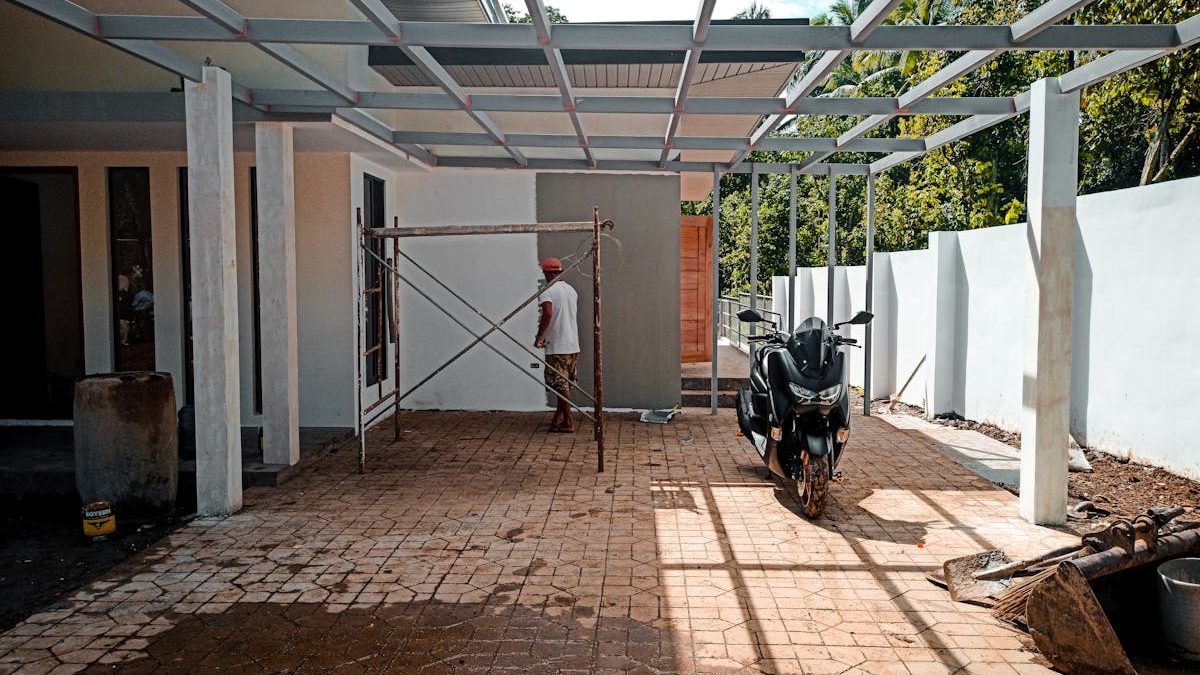
Why You Should Hire Local Construction Contractors for New Builds
When embarking on a new construction project, selecting the right contractors is crucial to its success. Hiring local construction contractors offers numerous advantages, from a better understanding of regulations to fostering community development, which makes it a preferred choice for many builders.
What are the benefits of choosing local contractors for new builds?
Understanding Local Regulations and Permits
Local construction contractors possess in-depth knowledge of regional building codes and zoning laws, ensuring compliance and minimizing legal hurdles. This familiarity leads to a smoother, more efficient project timeline, essential for the timely completion of new builds.
The ability to navigate bureaucratic requirements quickly saves time and resources, preventing costly delays. Furthermore, their established relationships with local authorities can expedite the approval of necessary permits.
By hiring locally, you benefit from a contractor’s experience in dealing with local inspectors and understanding of the nuances in regulatory standards. This level of comfort and assurance is invaluable in maintaining a project’s momentum.
Building Community Relations
Engaging local contractors directly supports and nurtures your community by keeping the economic activities close to home. This not only promotes community growth but also strengthens it by ensuring that money spent on construction is reinvested into the local area.
The enhancement of local community relations through these partnerships can lead to increased community pride and cohesion. It creates a network of support where businesses can thrive due to mutual benefits.
When local contractors succeed, they invest back into the community, contributing to a vibrant and sustainable local economy. Hiring locally thus becomes an essential component of building not just structures, but communities.
How do local contractors ensure quality and efficiency?
Access to Local Resources and Suppliers
Local contractors often have established connections with nearby suppliers, ensuring the best materials are readily available. This accessibility contributes to minimizing delays and maintaining the construction schedule efficiently.
The reduced reliance on distant suppliers also translates to cost savings, with less money spent on transportation and logistics. This proximity to resources means that materials are fresher and better suited for timely installation.
By leveraging these local partnerships, contractors can also acquire materials that are best suited for the region’s specific needs. This ensures both the quality of materials and an overall improvement in construction standards.
Established Local Reputation
A local contractor’s reputation is of utmost importance within the community, fostering a natural inclination towards quality work and customer satisfaction. Knowing that word-of-mouth matters, these contractors often go the extra mile to uphold their good name.
The necessity of maintaining a positive reputation drives a commitment to excellence and reliability. This dedication ensures projects are not only completed on time but also meet the high expectations of local clients.
Furthermore, clients can easily verify a local contractor’s past work and references, which aids in building trust. This transparency and accountability are pivotal in ensuring peace of mind throughout the construction process.
Are local construction contractors more cost-effective?
Minimizing Transportation Costs
Choosing local contractors naturally reduces transportation expenses related to moving labor and materials, directly impacting the construction budget positively. This cost efficiency is often reflected in competitive overall project pricing.
The savings on transportation allow funds to be allocated effectively towards other essential aspects of the project, enhancing quality without escalating costs. In turn, this budget-friendly approach helps ensure financial stability throughout the project.
Furthermore, the reduction of logistical costs contributes to quicker, more adaptable expansion in unforeseen circumstances. Local contractors can modify plans with agility, adding value to the client through minimized disruptions.
Competitive Pricing
Local businesses understand the significance of lasting relationships, frequently offering competitive pricing as an incentive to cultivate ongoing partnerships. This competitiveness instills a climate of cost-effective and mutually beneficial engagements.
When local contractors price their bids attractively, they strengthen their standing within the community, encouraging repeat business and referrals. This creates a cycle of economic prosperity for both the contractor and the client.
As such, the community aspect of a contractor’s operation ensures conscientious pricing strategies that align with both business sustainability and customer satisfaction. This dynamic ultimately leads to advantageous pricing models that are hard to beat by non-local options.
Can local contractors customize projects based on regional needs?
Customization Based on Climate Conditions
Local contractors bring valuable insights regarding climate impacts, tailoring building processes and material selection accordingly. This expertise is pivotal in creating structures that can withstand local environmental challenges effectively.
Understanding the region’s unique climatic conditions allows for optimal customization, ensuring durability and longevity in construction. Contractors use this knowledge to advise on best practices in design and materials, prioritizing sustainability.
Moreover, this tailored approach ensures the built environments are comfortable and energy-efficient, reflecting a thoughtful adaptation to natural elements. Such considerate construction strengthens trust among clients and the broader community.
Adapting to Community Aesthetic Standards
Familiarity with local culture is crucial, and local contractors exhibit the ability to incorporate architectural styles that seamlessly blend with community aesthetics. This adherence to local design preferences ensures improved acceptance and harmony within the community.
By valuing the natural aspects of the area’s architectural landscape, local contractors contribute to preserving community identity. This respectful integration of style and functionality is integral to maintaining the character of the neighborhood.
Their adaptability in working with existing community structures underscores the intention to improve the area without disrupting its cultural narrative. Supporting local visual traditions becomes part of creating places where people feel connected and proud.




